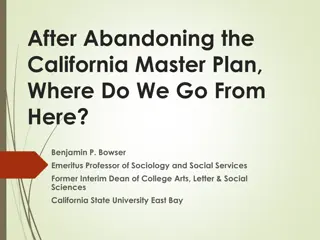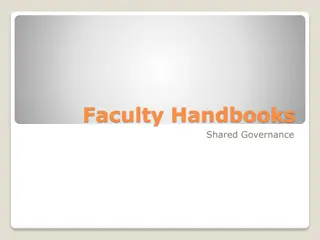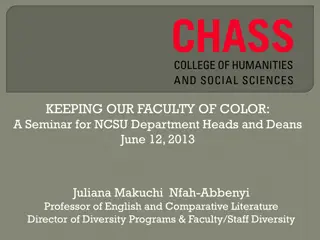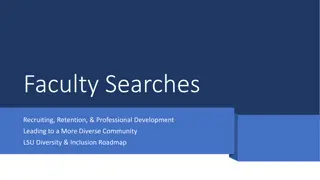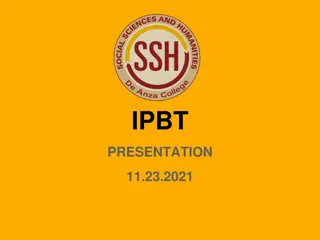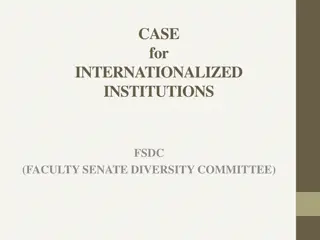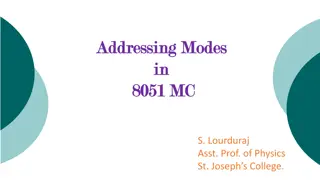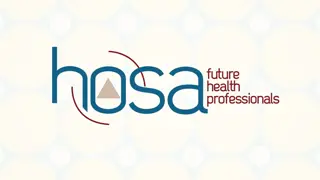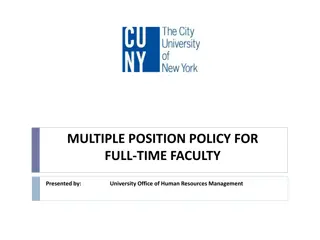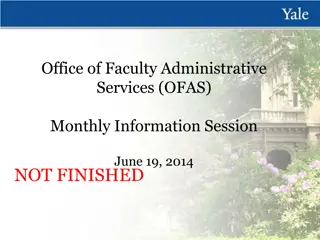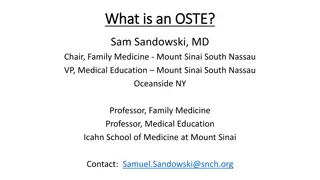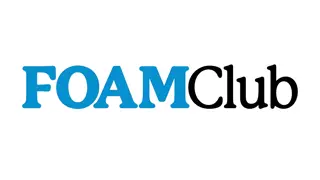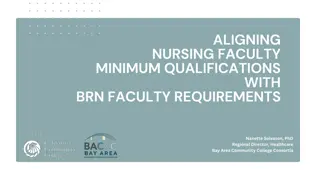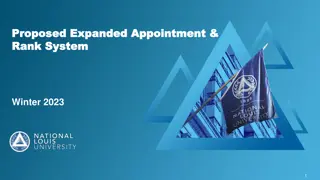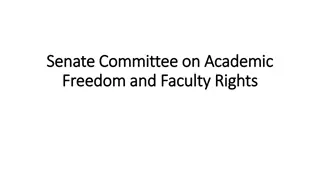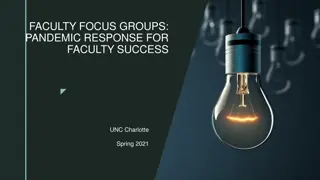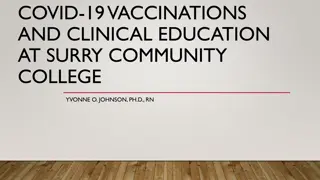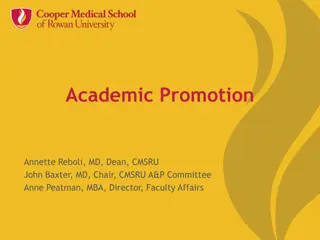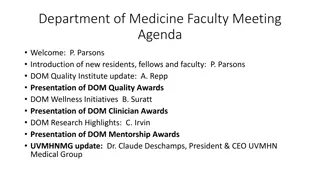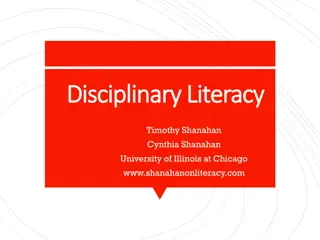Addressing Faculty Remediation Challenges in Medical Education
This content discusses strategies for identifying faculty members in need of remediation in medical education settings, emphasizing the importance of timely feedback and assessment. It covers topics such as setting clear expectations, recognizing when faculty fall short as role models, and practical methods for detecting and addressing issues. Case histories illustrate real-world scenarios in academic medicine.
Download Presentation

Please find below an Image/Link to download the presentation.
The content on the website is provided AS IS for your information and personal use only. It may not be sold, licensed, or shared on other websites without obtaining consent from the author. Download presentation by click this link. If you encounter any issues during the download, it is possible that the publisher has removed the file from their server.
E N D
Presentation Transcript
American Society of Hematology 55th ASH Annual Meeting Disclosure Statement Roy L. Silverstein, MD Nothing to disclose Discussion of off-label drug use: Not applicable
When Role Models Fall Short: How to Remediate Faculty Roy L. Silverstein, MD Chair, Department of Medicine Medical College of Wisconsin
An ounce of prevention is worth a pound of cure: Setting expectations up front Consistent and persistent communication Clear sponsorship from institutional leaders: Department Chair and Division Chief Program Directors (IM and Specialty) Ready availability of faculty development tools
Setting expectations up front: New faculty orientation and periodically for all others Teaching When, where, how much Appropriate to level of trainee Trainee Assessment In the DOM at MCW we tie faculty compensation to timely assessment Mentoring Role Modeling Faculty Assessment
How do you know when a faculty member needs remediation? Formal assessment/evaluation by trainees Difficult in specialty programs because of size and anonymity issues Lake Wobegon Syndrome Direct observation Informal feedback from trainees and peers Document Allows detection of patterns Informs and allows formal remediation Transmit back to faculty if appropriate Early formative feedback is more likely to succeed than feedback presented in crisis mode the first step in the remediation process is timely and accurate feedback!
Case History #1 Successful mid-career faculty member promoted to Associate Professor last year Director of Leukemia Service Service growth 40% over 3 years ADC ~20 Major feeder of SCT program >$1M/yr in sponsored trials and translational research High impact papers High profile recruitment target/flight risk
Case History #1 (continued) Escalating complaints from residents and fellows Dismissive Humiliates us when we don t know the answers pimps us on rounds Residents and students: He targets teaching to fellows Makes decisions without discussing with fellows Assigns scut work without engaging us in decision making
Case History #1 (continued) IM PD complains late or incomplete evaluation of residents Same problem for fellows Division Chief is supportive, but feels helpless because Department Chair, Cancer Center Director and Hospital CEO love him WHAT CAN YOU DO?
Remediation is the next step Providing a psychiatric diagnosis is generally not a useful approach Recommending psychotropic therapy is not a useful approach
Can we learn from our colleagues in the business world? Hypothesis: Remediation is equivalent to Change Management
What is Change Management? Well studied subject in organizational management field Robust literature based on Survey data Longitudinal studies Interventional studies
What is Change Management? Application of a structured approach and set of tools for managing the people side of change in an organization e.g. rolling out new IT, new organizational structure, new product line, new approach to marketing or sales Dealing with the burning platform In Medicine P4P, Value based purchasing, risk- based contracts, declining $/RVU It is a core competency for leaders
ADKAR A useful model (Jeffrey M. Hiatt) Awareness Of the need for change and Of the nature of the change Desire to support the change and participate and engage Knowledge of how to change Ability to implement new skills and behaviors Reward/Reinforce to sustain the change
Awareness Where am I falling short and what are the consequences? Quality and impact of trainee assessments deteriorate if not done in a timely manner Trainee morale is low Pipeline is threatened Work product is not optimal Professionalism is being questioned Leadership opportunities are threatened
Desire WIIFM - What s in it for me? Eliminate the reverse incentive; i.e. don t reward poorly performing faculty by removing them from teaching responsibilities! Emphasize the positive rewards: Fellows can contribute to your research team Good residents can be recruited to the fellowship Trainees will contribute more to the workload if they are engaged and happy Trainees will grow up to be your colleagues Teaching performance will be factored into promotion decisions and leadership advancement
Knowledge (of what and how to change) Identify the specific gaps and issues for the individual faculty member We are not born to be good teachers, mentors, and role models Most medical schools have faculty development programs take advantage of them Large IM training programs have faculty development tools and mentoring available Leadership development programs/workshops can help faculty see the big picture Occasional co-rounding to provide role models for the under-performing faculty member
Ability Knowledge does not equal ability. I know how to dribble a basketball but I will never be a point guard in the NBA! Provide a tool kit to allow change
Reinforcement/Reward Monitor progress Rewards can come in many forms Recognition in front of colleagues Awards Financial Support for other activities
ADKAR can be a diagnostic tool to guide remediation efforts 20% Desire: 40% Knowledge: 15% Ability: 20% Reward: 5% Awareness: In this case, focus remediation efforts mostly on creating desire and secondarily on increasing awareness and ability
Case History #2 First year faculty member on inpatient service Rounds early before trainees arrive and writes orders without engaging trainees Goes back mid-day and rewrites trivial orders Trainees complain that she doesn t teach She tells you that she loves to teach and wants to focus her career on the clinician educator pathway, but she complains to you that fellows are incompetent
ADKAR can be diagnostic tool Awareness: Desire: Knowledge: Ability: Reward: 40% 0% 30% 20% 10% In this case, focus remediation efforts on building awareness of the need to change and providing help with increasing her knowledge and ability to change
What are the obstacles to change? 1. Faculty resistance to change Communication is key Understand values How do we respond to commands Old school: Chair says Jump Faculty member says How high New school Chair says Jump Faculty member says Why
What are the obstacles to change? 2. Lack of appropriate sponsorship for change Engage Division Chief, Department Chair, Cancer Center Director in the process Their most important roles are to promote awareness and desire and to provide support for tools
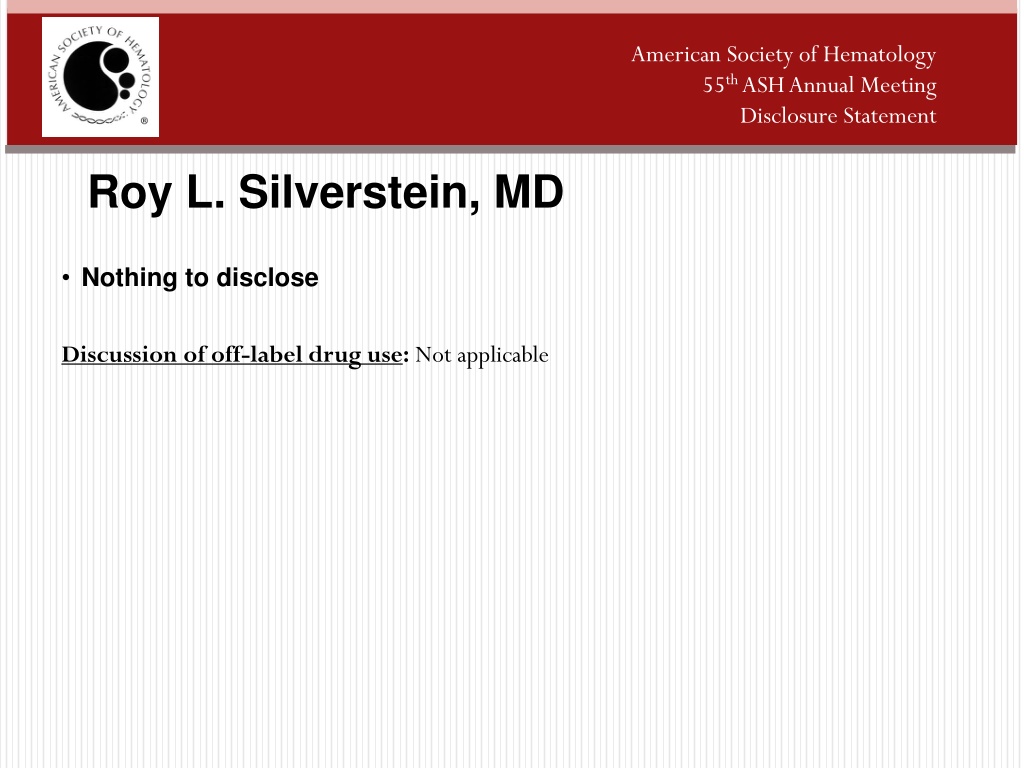

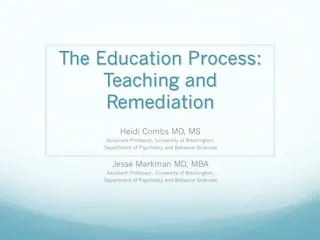
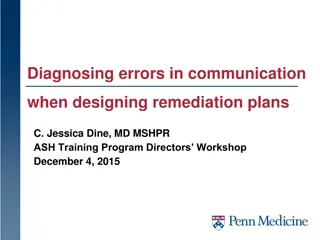
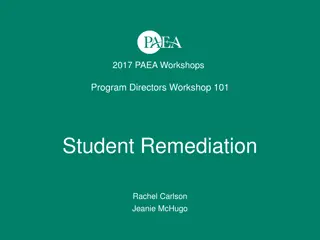

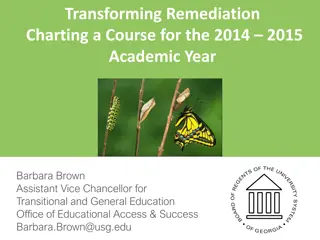
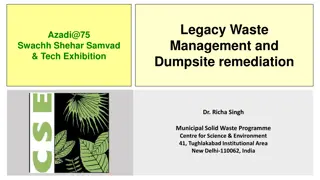
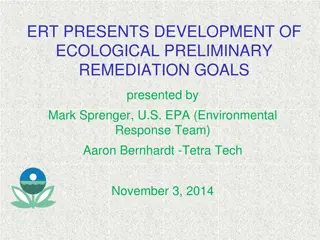
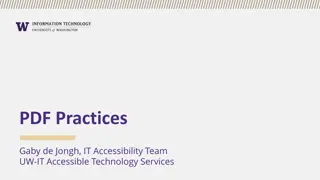
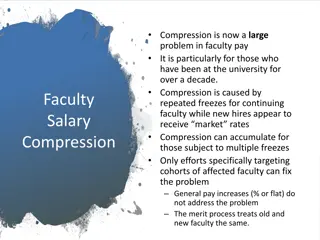
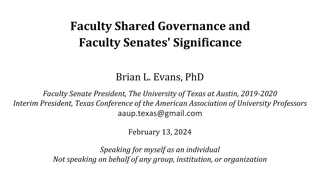
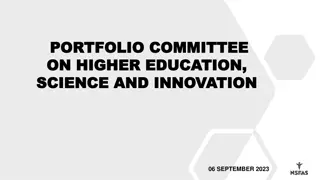
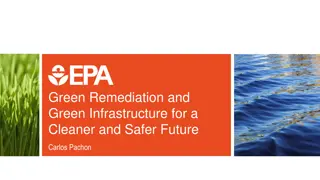
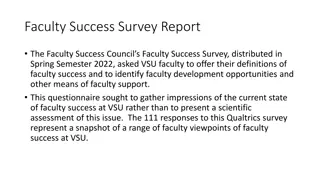

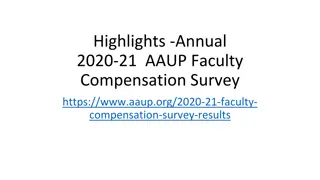
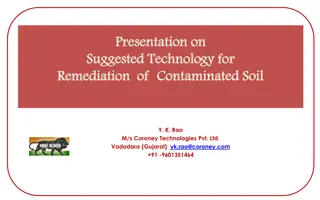
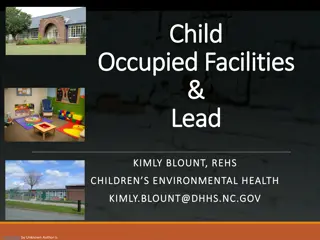
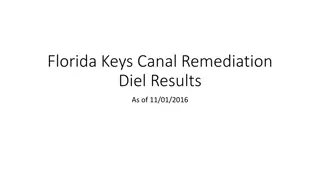
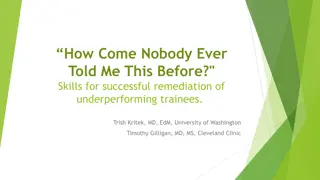
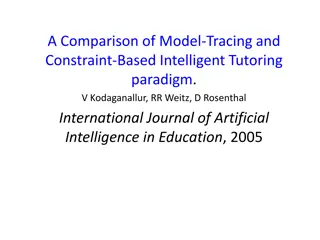
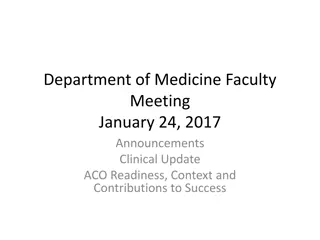
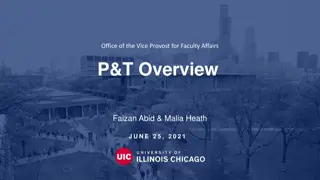
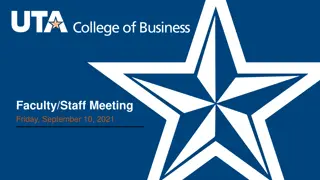
![Overview of the Faculty Senate at [Institution Name]](/thumb/233771/overview-of-the-faculty-senate-at-institution-name.jpg)
